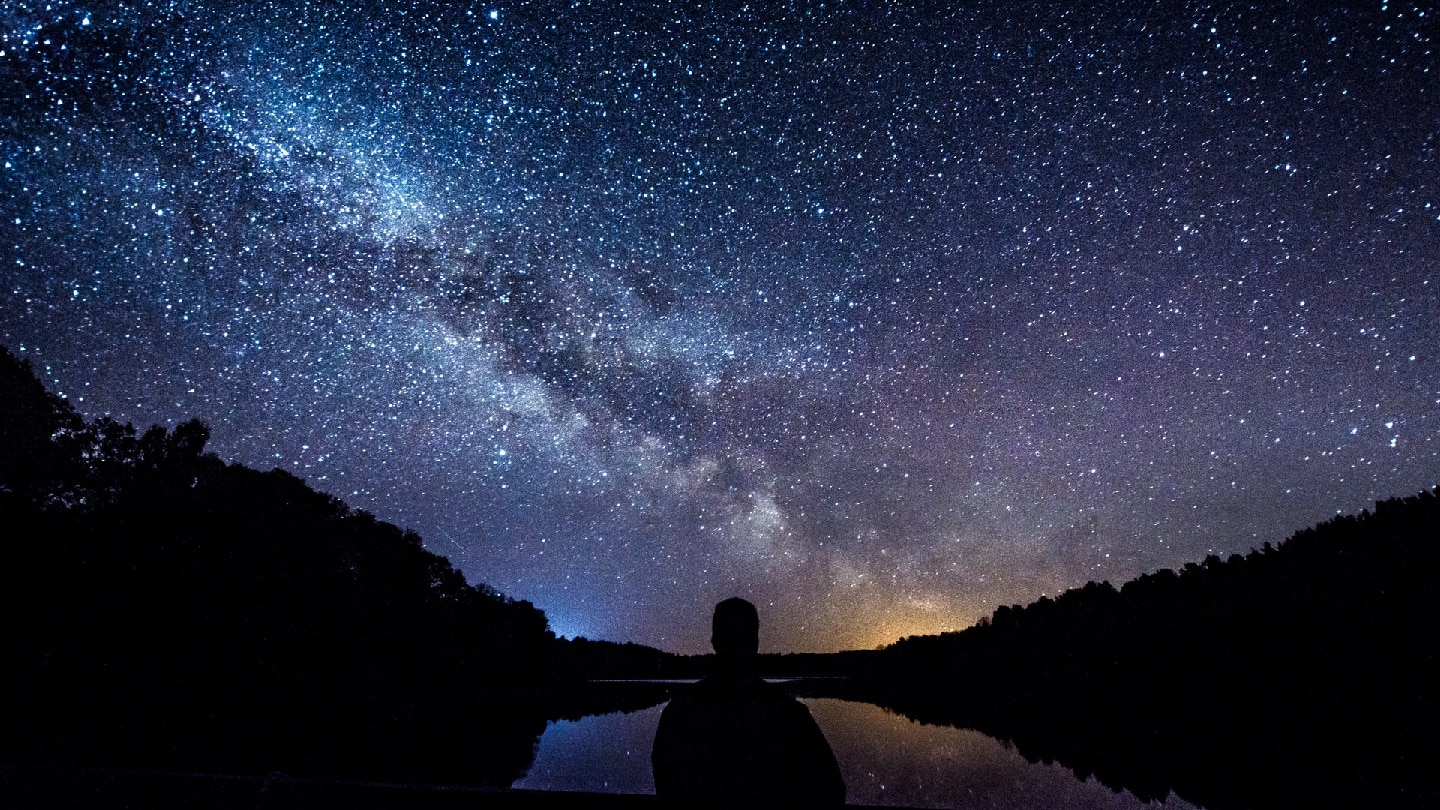God created the father and mother of all humanity to relate to them in the community of Father, Son, and Holy Spirit. But Adam and Eve chose to go their independent way of relying on knowledge, thus placing themselves outside the blessed life surrendered to God. Following suit, we, their progeny, struggle to find our independent way by our reason. Believing we have a rational GPS between our ears, we trust it to guide us individually and collectively.
We’ll see the consequences early in Genesis and then through the struggles of a chosen people trying to be a people of God. When Jesus came, He described the type of people who could hear God’s voice, the beatitude people – God’s new humanity.
God’s Favorites
What kind of person does God favor? There are examples of individuals He blessed in the Old Testament–Abraham, Joseph, and David. We can use the beatitudes as a checklist describing those whom God blesses.
- Poor in spirit – No inflated view of self
- Mournful – Sorry for his sins and the misery of others
- Meek – Quietly productive
- Hungry and thirsty for righteousness – Driven to correct injustice
- Merciful – Quick to forgive
- Pure in heart – Not lustful, wanting the best for others, not calculating how to take advantage of others
- Peacemaker – Leaving no wake of disturbance; resolving conflict
- Persecuted and vilified – Harmed by word or deed for doing what is right
From Potential to Failure
In contrast, the lives of Adam’s and Eve’s early descendants help us to see ourselves in our natural state. Today, marriage and family counselors use genograms to help husbands and wives understand themselves and each other by looking back at two generations. Similarly, we can better understand our inherited human nature by reflecting on our earliest kinfolk in Genesis.
We’ll begin by picturing humans from Adam and Eve to Abraham; then take a 10,000-foot view from Abraham to Christ. Except for only a few, all humans, including God’s chosen people, never got it right. Rather than trying to make a certain race perfect, God chose from all nations a single people with certain dispositions.
God created our first parents as relational beings. Our ability to relate seems so natural; we don’t consider it a special gift from God. Yet, most failures in life are due to the inability to relate. More people lose their jobs because of relationships rather than lack of skills.
Years ago, I met a nun who had served in Mother Teresa’s House of the Dying and served as a midwife in Africa. She had come to Birmingham for her Sabbatical to practice living with others to improve her ability to relate to others. I asked her why she needed such practice; she said living with another person is the hardest thing one will ever do in this life. If a nun from a close religious community needs to improve her relational ability, what about most of us living in a competitive, individualistic society?
If God had not made us relational beings, we could not love. As relational beings, we have the potential to love God and others. If we were only thinkers, we could not love.
Nevertheless, our first parents got off on the wrong foot when they chose to follow their human knowledge rather than to live in the divine community—relationship with the Father, Son, and Holy Spirit. Everyone has repeated this mistake, and sadly, most humans never get over it. We believe we know what’s best for us. We assume that we are rational individuals, and so, we think we need only our commonsense to manage our lives.
High intelligence helps us to know about things, but it does not help us understand ourselves or conform to God’s will. Even the most intelligent people make big mistakes in life. God did not design us as autonomous individuals guided only by reason and knowledge. He created us to be relational beings—to live in communion with Him so that our will and thinking blend. If we die to ourselves to live in community with Him, He sees us through this world’s chaos; we rest in Him, not tossed to and fro by this world’s clashing currents.
Seeing Ourselves in Our Earliest Ancestors
The first child of the first parents killed his brother out of jealousy. Then he extended his evil by building the first human government. Augustine compared this first murder driven by jealousy to the murder of Remus by Romulus, mythical founders of Rome. (See the endnote for Augustine’s reflection on the jealousy of Cain for Able and Romulus for Remus.)[i]
Because of this endemic trait, one brother killed the other. Later in the Genesis story, Nimrod, the mighty hunter, built up Babylon and established Nineveh.
Babylon and Nineveh became the arch-foes of God’s work with His chosen people. The Assyrians, whose capital was Nineveh, captured and deported the ten tribes of Israel in the Northern Kingdom. Later Babylon captured and exiled the Jews in the Southern Kingdom. John described Rome in Revelation as Babylon, the opposer of Christ’s kingdom.
Cain had three later descendants who symbolize three major human preoccupations. Jabal represents the good life as dwelling in tents surrounded by his wealth—his flocks. Today’s Jabal has a big house and is deeply invested in the stock market.
Jubal is noted for playing the lyre and pipes, and he represents entertainment. In our affluence, we distract ourselves from our endless striving for more by constant entertainment. Tubal was the technologist, a forger of bronze and iron. Technology, based on science, multiplies our abilities to secure more of the good life.
There was another line of people from Adam and Eve other than Cain’s descendants. Seth, their third son, replaced Abel. One of Seth’s descendants, Enoch, so pleased God that He spared Enoch from suffering death and took Enoch to be with Him.
Before the flood, the most notable of Seth’s descendants, Noah was the only righteous man on earth. In Noah’s day, humans had become so corrupt that God regretted making them. He ordered a flood to wipe the earth of all human and animal life.
After the flood, God started anew on a clean slate with Noah and his three sons – Japheth, Shem, and Ham. Japheth’s descendants lived in Syria, Greece, Italy, and as far as Spain. We’re likely Japheth’s descendants. Ham’s people lived in Canaan, Egypt, North Africa, and Arabia. Shem’s people clustered in Mesopotamia, around the Euphrates and Tigris rivers, and in southern Arabia.
The self-confident, proud people near Babylon decided to build a tower into the heavens to make themselves known. God did not want them to fulfill their human ambition, so, He confused their language.
After this, humans have found it impossible to succeed in worldwide projects. We think in our language, thus, it is difficult for people with different languages to think alike. It is hard to imagine what the world would become if by working together, humans created a world to fit their desires and lusts. In Macbeth, Shakespeare describes life outside of communion with God:
Life’s but a walking shadow, a poor player
That struts and frets his hour upon the stage
And then is heard no more: it is a tale
Told by an idiot, full of sound and fury,
Signifying nothing.
A New People, A Chosen People
Having seen humans continually trying to live independent of Him, God adopted one people that would put Him first over their inclinations.
So, He went to Shem’s people living along the east side of the Euphrates to call Abraham out of Ur, south of Babylon. He took Abraham from the most advanced place at that time in the ancient world to live among Ham’s people in the Canaan outback. Here Abraham would become the original father of a chosen, blessed people—a light to all humankind. God put Abraham’s descendants in Egypt as slaves under Ham’s descendants for centuries.
After 430 years, God appointed Moses to lead them out. Paul says they were baptized into Moses in the cloud and the sea. As they went on, they ate the same spiritual food and drank the same spiritual drink from the spiritual Rock following them, which was Christ.
Despite these rich provisions, they did not live up to their destiny. These former slaves, saved from bondage, became idolaters and fell into sexual immorality. They put Christ, the Rock that followed them, to the test and grumbled in discontent. The adult men—baptized in the cloud and sea—failed to trust God, and they died before they reached the Promised Land.
Nevertheless, God gave them instructions on how to live as God’s light in the dark world of Japheth and Ham.
After wandering in the desert for 40 years, they came to the land of milk and honey, with wells they did not dig and fruit trees they did not plant. It was as if a noble, rich, kind man found a deserted, dirty baby in a ditch, picked it up, and bathed and royally clothed it, and provided the best education, but when the orphan came of age, he rejected his loving, generous father.
For a while, they lived in Canaan without a ruler; whenever they disobeyed God, they fell victim to their neighbors, God always sent them a savior to their rescue when they called on Him. They became envious of their neighbor nations with a king and an established army.
So, they asked for a king, apparently not realizing that they were trying to take care of themselves. They, like Adam and Eve, sought independence from God. Remember:
- Adam and Eve chose to go at it alone by human knowledge.
- Cain, the first murderer, formed the first human government separate from God’s rule.
- Nimrod developed Babylon and built Nineveh, and both became opponents to God’s people.
- Those living around Babylonians tried to reach the heavens independent of God through human cooperation and planning.
In a similar manner, God’s chosen people decided to provide for their protection on their own by establishing over them a king with a standing army.
God gave them three kings.
First was Saul who quickly went his way, even assuming at one point the role of priest. Then, God appointed a man after his heart, David. This king also made mistakes; but when confronted with them, he was sorry and repented, although he had to bear the consequences. Then Solomon, the richest and wised man, merged all that David had conquered from the Euphrates to Egypt.
Solomon’s son, Rehoboam, lost it all, except for the tribe of Judah around Jerusalem, by one wrong decision. Again, we have a man led by his ego wanting to be the big man. When Rehoboam announced more burdensome taxes, the northern tribes readied to revolt, and an ambitious man who was standing in the wings seized the moment to become their leader, Jeroboam.
So God’s chosen people split into two peoples—Judah in the south and Israel in the north—with their respective histories described through the reigns of their kings. Israel’s kings and people often deserted God for the idols of the surrounding people. They got off on the wrong foot when Jeroboam made two golden calves, placing one in Dan and the other at Bethel. He used religion for political ends. Eventually, God sent the Israelites into cruel Assyrian captivity, never again to be a nation.
In the Southern Kingdom, most of the Jews, particularly the abler, were deported to Babylon, staying 70 years. Upon their return to Jerusalem and the surrounding area, they never practiced idolatry again. Later, they built synagogues and focused on the scriptures.
Different sects emerged, such as the super-religious Pharisees, the Sadducees, the scribes, and experts in the Law. In their respective roles, they became legalists, more focused on keeping the forms and ceremonies of the Law than becoming a people with God’s heart. Thousands of years after the first humans were created as relational beings to live in community with God and other humans, the legalism of the Jews so distanced them from God that they did not even recognize Him when He appeared as Jesus Christ.
Jesus said they strained at gnats and swallowed camels.
Lesson for Us
Why have I attempted this quick overview of God looking for a people to live in community with Him? By the time Christ came, the Jewish religious leaders had let religious doctrines, practices, and form preoccupy them. Consequently, they had lost sight of becoming what God ultimately wanted them to be. They counted more on their physical descent from Abraham than on having his faith.
In the past, our fellowship believed that if we restored the forms and practices of the first-century church, then that would make us God’s people. This dominating preoccupation led us away from being formed by the Holy Spirit into Godlikeness through communion with Him.
With this article, I am illustrating that humanity from the beginning missed the mark, choosing to go its own way. Rich North America is disconnected from God, believing we made our own success through science and technology. Like our ancestors, we have come to trust our thinking more than to have a relationship with God.
So, let us take note of our tendency to trust in our intelligence and abilities. Let us worry about ourselves and our fellowship as Paul worried about his Galatian children,
“my little children, for whom I am again in the anguish of childbirth until Christ is formed in you!”
Let us seek to live out the beatitudes in our lives as God’s chosen people, a new humanity.
[i] Of the Fratricidal Act of the Founder of the Earthly City, and the Corresponding Crime of the Founder of Rome by Augustine. (Fathers of the Church, The City of God, Book XV, Chapter 5, http://www.newadvent.org/fathers/120115.htm)



Jesus said that he was not God. Jesus and John said that no one has ever seen God. How does this gentleman say that Jesus is God? If Netivyah teaches what Jesus did not teach, I will stop studying here. Adonai is One God and Jesus said that. Jesus prayed and God does not pray to God. Satan tried Jesus, Satan doesn’t try God. Jesus is the savior messiah, not God. Luke 18:19. I am sorry for my question, I love One God from Israel.
Carla, to make it short, for the sake of the site, just read “very carefully” the gospel of John, and what Jesus said about himself. Equating himself with God the Father. Of the same very nature with God, when Jesus said the “I and the father are one.” And when Jesus told the Pharisees, “I AM,” which is how God-Adonai identifies Himself all over the Bible. And for which actually Jesus was crucified. They themselves said to answer Jesus’ question about why they wanted to kill him. It was not because of all the good deeds he did, but because he was making himself (equating) God. And so forth. The very same one and only God you trust and believe in, because of infinite love for his sinful creatures, came as a man to be able to die and resurrect for all of us, so that we can have an intimate relationship with Him, through the forgiveness of sins, making possible that relationship with the Holy One. Juts read the Gospel of John, very slowly and try to connect all that to what was said by the Prophets and all.
Well done mister John Harris.
You are blessed.
Maria Göbel